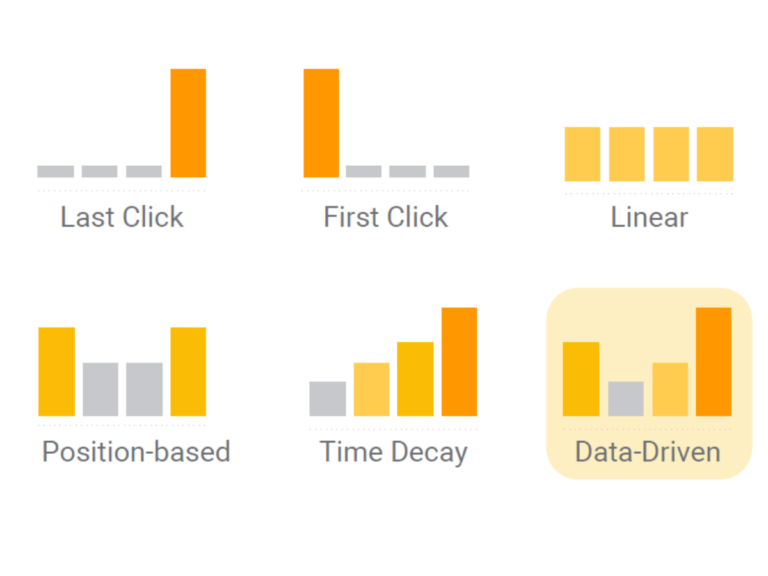Is your website part of the 96.55% of sites that get zero traffic from Google searches?
If so, it’s probably time for an SEO audit.
An SEO audit identifies areas where your website excels and where it needs improvement. You or your marketing agency can use this information to improve your site’s visibility and rankings on search engine results pages (SERPs).
But if SEO isn’t your specialty, it’s hard to know what to expect or even look for in an audit.
That’s why we created this guide to SEO audits. We’ll cover what an audit entails and why each factor matters, so you can be confident you’re getting a comprehensive audit that will deliver a positive ROI.
- What is an SEO audit, and when should you get one?
- Technical SEO audit
- On-page SEO audit
- Off-page SEO audit
- Content audit
- What to look for in an SEO audit provider
- Boost your website’s ranking with a comprehensive SEO audit
What is an SEO audit, and when should you get one?
An SEO audit is a complete analysis of your website’s search engine optimization (SEO) performance. It covers all different aspects of your site, including technical, on-page, off-page, and content factors, to identify strengths, weaknesses, and opportunities for improvement.
Regular SEO audits help you stay up-to-date with search engine algorithms, maintain competitiveness, and continuously improve your site’s rankings. So ideally, you want to get an audit every 6-12 months to maintain and enhance your site’s SEO health.
Outside of a regular audit schedule, you should also get an SEO audit when you experience unexplained drops in traffic, launch a new website, or redesign an existing one.
Here’s what to look for in an SEO audit and why each element affects website visibility and rankings.
Technical SEO audit
Technical SEO focuses on optimizing your website’s infrastructure to make it easier for search engines to crawl, index, and rank your content. In other words, it takes a behind-the-scenes look at your site to see if it meets the technical requirements set by search engines like Google.
Effective technical SEO lays the foundation for all of your other SEO efforts. Without a strong technical foundation, other SEO strategies may not net the results you’re looking for, as search engines will struggle to access and understand your content.
Poor technical SEO can lead to:
- Crawl Errors: If search engine bots can’t properly crawl your site, they can’t index your pages, leading to poor visibility in search results.
- Slow Loading Times: Slow websites frustrate users and result in higher bounce rates (the percentage of users who only visit a single page on your site) — which is why site speed is a Google ranking factor.
- Mobile Usability Issues: Over 60% of website traffic comes from mobile devices, so mobile-friendliness is a must for modern websites.
- Security Issues: Since websites without HTTPS are less trustworthy and secure, both users and search engines typically avoid them.
Key elements of a technical SEO audit
Website Crawlability
Your audit should include an assessment of how easily search engine bots can access and index your site’s pages. Look for services that use industry-standard tools to identify crawl errors, broken links, and issues with site structure. Good crawlability ensures search engines can access all of your website’s important pages, improving visibility.
Site Speed and Performance
Site speed significantly impacts the user experience and SEO rankings. Your auditor should measure your site speed and provide recommendations for improving load times, such as optimizing images, minimizing HTTP requests, and enabling browser caching. Faster sites provide a better user experience, which is a major selling point for search engines.
Mobile-Friendliness
Thanks to Google’s mobile-first indexing, sites that aren’t mobile-friendly can see significant drops in rankings. So your audit needs to include a mobile usability test and suggestions for enhancing mobile performance, like switching to a more responsive, touch-optimized design. Mobile-friendly sites offer a better user experience, leading to higher engagement and better rankings.
HTTPS Status
Security is absolutely essential for SEO. The audit should verify your site uses HTTPS and check for any mixed content issues (pages that are only partially encrypted). They should also help you install an SSL certificate if needed. HTTPS is a major ranking factor, as it ensures that your site protects user data, which builds trust and improves credibility.
XML Sitemaps and Robots.txt
A comprehensive audit will also review your XML sitemap and robots.txt file (instructions that tell bots which pages they can and can’t access) to ensure they are error-free and properly configured.
If you haven’t already, your auditor should also help you submit your sitemap to Google Search Console. Correctly configured sitemaps and robots.txt files help search engines understand your site structure and crawl it more effectively.
On-page SEO audit
On-page SEO focuses on improving individual pages on your website so that they rank higher and earn more relevant traffic. This is the type of SEO that most people think of when they hear the term search engine optimization, and it involves optimizing things like content, HTML source code, and meta tags.
On-page SEO helps search engines understand the context and relevance of your content, so they can determine whether it will correctly and efficiently answer users’ queries. It also directly impacts the user experience and can make your site more engaging and useful for visitors.
Poor on-page SEO can lead to:
- Low Search Visibility: Without proper optimization, your pages will not rank well, leading to low visibility and traffic.
- Poor User Experience: Badly structured content and missing meta tags can frustrate users and lead to high bounce rates.
- Irrelevant Traffic: Ineffective keyword targeting can attract the wrong audience, resulting in low engagement and conversions and high bounce rates.
Key elements of an on-page SEO audit
Title Tags and Meta Descriptions
Title tags and meta descriptions are some of the most critical elements for SEO and user experience — and also the most overlooked or ignored. They tell both search engines and users what your content is about and lead to higher click-through rates (CTRs — the number of people who saw your link vs. the number who clicked on it).
So your audit should check for unique, descriptive title tags and meta descriptions that include target keywords. Optimizing these elements will improve your site’s visibility and attract more clicks from SERPs.
Header Tags (H1, H2, etc.)
Header tags aren’t just for looks and readability — they structure your content and tell search engines how important each section is and where it falls in the hierarchy. So it’s important to make sure your auditor checks to see if you’re using header tags correctly and provides best practices for optimizing them. Well-structured content is easier for search engines to understand and more engaging and visually pleasing for users.
Keyword Usage and Optimization
Keywords are foundational to SEO, as they allow search engines to match your content with search queries. The audit should assess your keyword usage and look for issues like keyword stuffing, irrelevant keywords, and low keyword coverage. Effective keyword optimization helps your content rank for relevant queries, driving targeted, organic traffic.
Internal Linking Structure
Internal links distribute link equity (how much value the link adds through relevance, authority, and positioning) and guide users through your site. Your audit should evaluate your internal linking strategy, ensuring relevant links and descriptive anchor text are used effectively. A good internal linking structure improves site navigation and helps search engines discover and index your content.
Content Quality and Relevance
High-quality, relevant content goes hand-in-hand with keyword optimization. No matter how good your content is, search engines (and users) will never find it without relevant keywords. Likewise, comprehensive keyword coverage won’t matter much if your content is poor or not useful.
So your auditor should assess the quality and relevance of your content and provide recommendations for creating and maintaining valuable content. Engaging, informative content attracts and retains users, improving engagement metrics and SEO performance.
Off-page SEO audit
Off-page SEO refers to factors outside of your website that impact your rankings. While it may seem like you don’t have a lot of control over what goes on outside your site, there’s actually quite a bit you can do to improve your off-page SEO.
This type of SEO focuses on building backlinks, improving social signals (social media visibility and engagement), and enhancing brand visibility through external resources and platforms. Off-page SEO is critical because it helps build your site’s authority and credibility. Search engines use off-page factors to determine your site’s popularity and trustworthiness.
Poor off-page SEO can lead to:
- Low Authority: Without quality backlinks, your site may struggle to rank for competitive keywords.
- Limited Brand Awareness: Low social signals and brand mentions can limit your site’s exposure and recognition.
- Weak Competitive Edge: Failing to analyze and outperform competitors’ off-page strategies can leave you lagging in the SERPs.
Key elements of an off-page SEO audit
Backlink Profile Analysis
While there’s a lot of confusion and varying opinions over how much backlinks matter, evidence shows that they’re still a significant ranking factor. But the key is quality over quantity — a few curated, high-authority backlinks will do much more for your SEO than a ton of spammy, low-authority links.
Your audit should analyze your backlink profile using tools like Ahrefs or Moz, identify low-quality or broken links, and provide strategies for acquiring high-quality backlinks. A strong backlink profile boosts your site’s authority and improves its ability to rank for competitive keywords.
Social Signals
Social signals (likes, shares, and comments on social media) can indirectly influence SEO. The more search engines can learn about your brand — and the more popular it seems — the more they will promote your website in the SERPs.
So the audit should assess your social media presence and suggest ways to enhance your social signals. Active social media engagement can drive traffic, increase brand awareness, and help search engines better understand your content’s relevance.
Brand Mentions
Search engine algorithms are vast and complex. In simple terms, they don’t just look at your individual website to determine rankings — they look at the internet as a whole. So brand mentions outside of your site, even without links, can positively impact SEO.
That said, your audit should look at mentions of your brand on other sites and provide strategies for increasing and optimizing brand awareness and mentions. Frequent brand mentions enhance your site’s visibility and credibility — plus, you get more brand exposure and awareness.
Competitor Analysis
Like it or not, SEO is a huge part of the battle between you and your competitors. So your audit should include an analysis of competitors’ backlink profiles, content strategies, and keyword rankings, identifying gaps and opportunities that you can capitalize on.
Understanding your competitors’ SEO strategies can provide valuable insights into what works in your industry and help you take advantage of gaps or low-performing areas to gain a competitive edge.
Content audit
Content SEO focuses on creating and optimizing content to rank higher in search engines. But you’re not just writing for the bots — search engines try to identify content that will be valuable to human readers. So they look at things like content quality, relevance, and user engagement.
Content is a core component of SEO, as it’s what both users and search engines interact with. Effective content SEO ensures your content meets user needs and search engine requirements.
Poor content SEO can lead to:
- Low Engagement: Uninteresting or irrelevant content can result in high bounce rates and low user engagement.
- Poor Rankings: Content that isn’t optimized for search intent or keywords will struggle to rank.
- Missed Opportunities: Failing to identify and fill content gaps can limit your site’s ability to attract new audiences.
Key elements of a content audit
Existing Content Performance
The audit should assess the performance of your existing content using metrics like traffic, bounce rate, and conversions. It should identify high-performing content and suggest improvements for underperforming pages. Regularly evaluating content performance helps you maintain high engagement and uncover areas that could use some improvement.
Content Gaps and Opportunities
Identifying content gaps helps you create valuable new content and ensure comprehensive coverage. And don’t forget: your competitors are looking to take advantage of your content gaps as well, and you don’t want to give them that opportunity.
So your audit should include keyword research to find topics your audience is interested in that are missing from your site and provide strategies for addressing these gaps. Filling content gaps ensures your site meets user needs and attracts more organic traffic.
User Engagement Metrics
User engagement metrics, like time on page and social shares, show you how users interact with your content. The audit should track these metrics and offer tips for improving engagement by delivering a better UI/UX (user interface and user experience). High user engagement signals content relevance and quality to search engines, boosting your rankings.
What to look for in an SEO audit provider
Now that you know what to look for in an SEO audit, let’s look at how to choose the right SEO audit provider. Of course, you’ll want to make sure they offer a comprehensive audit that includes the elements discussed above, but there are some additional factors you should consider, such as:
Experience and expertise
Look for a provider with a proven track record of success and positive client reviews or testimonials. They should also have clear industry expertise and up-to-date knowledge of SEO best practices. If they have case studies available, you can review them to see successful audits and improvements they’ve made for businesses like yours.
Customized audit reports
A good SEO auditor offers detailed, customized reports that address your specific needs — not generic checklists. They should also provide actionable recommendations based on your unique site, goals, and industry.
Transparency and communication
Transparency and clear, open communication are vital for a successful SEO audit. Choose an auditor that clearly explains their audit process and findings, offers regular updates, and provides clear, jargon-free explanations of technical aspects.
Tools and techniques
Effective SEO relies on modern, purpose-built tools, so ensure the provider uses reliable, up-to-date, industry-standard tools and techniques, as well as current best practices.
You should also be aware that some less reputable providers use unethical black-hat SEO techniques to manipulate SERPs, but these approaches are unsustainable and may result in search engines de-indexing your site.
So it’s important to make sure your auditor only employs ethical, white-hat SEO practices that deliver long-term success and don’t put your site on the search engines’ naughty lists.
Post-audit support
SEO is complex and challenging, so depending on how many issues the audit finds, you may decide to enlist your provider’s help in optimizing your site. So it’s better to choose a provider upfront who offers post-audit consultations and support, as well as guidance or assistance implementing changes and monitoring progress.
Boost your website’s ranking with a comprehensive SEO audit
Regular SEO audits are essential for maintaining and improving your website’s search engine performance. When you understand and address your website’s technical, on-page, off-page, and content SEO factors, you can enhance your site’s visibility and ranking.
At DigitalPosition, we offer FREE comprehensive SEO audits tailored to your needs, situation, and goals. With DigitalPosition, you get a customized audit report and in-depth guidance to help you make sense of the results. Plus, we provide ongoing support to help you take your site to the next level and dominate the SERPs.
Unlock your website’s potential with a FREE DigitalPosition SEO audit today!





no replies